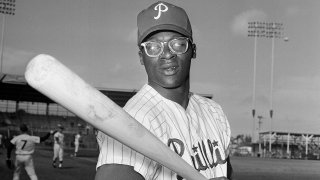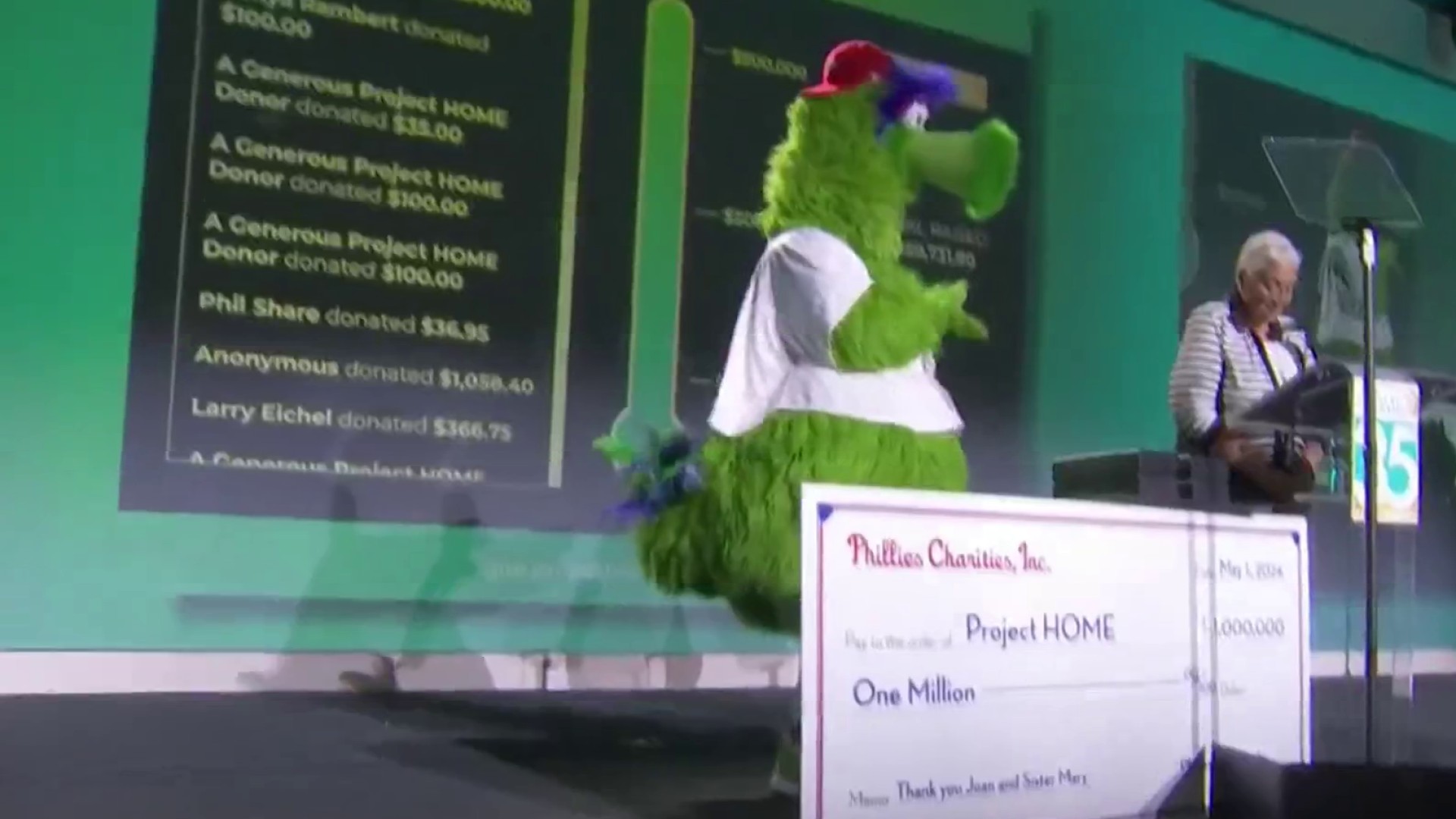
What to Know
- Dick Allen, the great former Phillies slugger, died Monday at his home in Western Pennsylvania. He was 78 and had battled cancer.
- Allen spent nine of his 15 big-league seasons with the Phillies. He burst upon the scene in 1964, hitting home runs over the roof at Connie Mack Stadium and winning the National League Rookie of the Year award as a third baseman.
- Allen’s No. 15 was retired by the Phillies in September and he may have been in line for an even greater honor this week when the Baseball Hall of Fame’s Golden Days committee was to gather in Dallas, site of the winter meetings, and vote on those who played from 1950 to 1969.
Dick Allen, the great former Phillies slugger, died Monday at his home in Western Pennsylvania. He was 78 and had battled cancer.
Allen’s No. 15 was retired by the Phillies in September and he may have been in line for an even greater honor this week when the Baseball Hall of Fame’s Golden Days committee was to gather in Dallas, site of the winter meetings, and vote on those who played from 1950 to 1969.
In 2014, Allen fell one vote shy of the necessary 12 for election to the Hall of Fame and hopes were high that he’d achieve the honor this year. However, the vote was pushed back a year (and the winter meetings cancelled) because of the pandemic.
Get Philly local news, weather forecasts, sports and entertainment stories to your inbox. Sign up for NBC Philadelphia newsletters.
Allen will be on the ballot again next year.
Posthumously.
Allen spent nine of his 15 big-league seasons with the Phillies. He burst upon the scene in 1964, hitting home runs over the roof at Connie Mack Stadium and winning the National League Rookie of the Year award as a third baseman.
Philadelphia Phillies
Complete coverage of the Fightin' Phils and their MLB rivals from NBC Sports Philadelphia.
He later moved on to the Chicago White Sox and was American League Most Valuable Player in 1972.
He was a seven-time All-Star.
Allen overcame great hurdles in simply reaching the major leagues. As a minor leaguer, he encountered racism and considered abandoning his promising career and heading home.
His mother encouraged him to endure.
“God gave you talent and a place to show it,” Era Allen told her son as he played for the Phillies’ Triple A team in Little Rock, Arkansas, in the summer of 1963. “Don’t let them drive you out.”
Allen continued to feel the sting of racism after arriving in Philadelphia. As a young man, he fought back and acted out against it and in 1969 was run out of town, labeled as militant, rebellious and insubordinate.
In 1975, after stops in St. Louis, Los Angeles and Chicago, Allen returned to Philadelphia, mellowed and mature. He mentored young stars like Mike Schmidt, Garry Maddox, Larry Bowa and Greg Luzinski. All four players, all members of the Phillies 1980 World Series championship team, attended the September ceremony in which Allen’s number was retired by the Phillies.
“The city of Philadelphia,” Allen said that day. “Even though it was rough at times, I made some friends along the way.”
One of those friends was managing partner John Middleton.
As a youngster in the 1960s, Middleton was captivated by Allen’s mammoth home run blasts at Connie Mack Stadium.
“I remember it was the first time I’d ever heard someone described as a phenom,” Middleton said last summer. “Dick helped turn my fandom into a passion.”
In an era known for dominant pitching, Allen was one of the most feared sluggers in the game, standing right there with Hall of Famers Hank Aaron and Willie Mays. In an 11-year period from 1964 to 1974, Allen averaged 29 homers and 89 RBIs while hitting .299 with a .940 OPS. Only Aaron's .941 OPS was better over that span. Allen slugged .554 from 1964 to 1974, second only to Aaron's .561. Only Billy Williams, another Hall of Famer, and Aaron had more extra-base hits than Allen's 670 in that 11-year run.
Allen posted better numbers than many of his contemporaries who were elected to the Hall of Fame by the Baseball Writers Association of America. Allen, however, never received more than 18.9 percent of the necessary 75 percent for election to the Hall by the writers. He fell off the ballot in 1997.
Allen's Hall of Fame candidacy during his time on the writers' ballot was clearly impacted by some of the off-field baggage he'd accumulated as a player, much of it unfair, much of it hearsay, none of it weighed against the society in which he played and the injustices he encountered.
Middleton was the driving force behind retiring Allen’s No. 15. Not only did he believe his childhood hero deserved the honor, he hoped it would prompt those who would decide on Allen’s Hall of Fame candidacy to take a closer look at the real-world challenges he faced as a young player.
“Dick’s numbers would have been even more extraordinary had he played in a better environment,” Middleton said. “Some of the conditions he played in and lived with off the field were truly horrific.”
After his playing days, Allen worked as an ambassador for the Phillies.
“We are heartbroken over the passing of our dear friend and co-worker,” the team said in a statement. “Dick will be remembered as not just one of greatest and most popular players in our franchise’s history, but also as a courageous warrior who had to overcome far too many obstacles to reach the level he did. His iconic status will resonate for generations of baseball fans to come as one of the all-time greats to play America’s pastime.”



